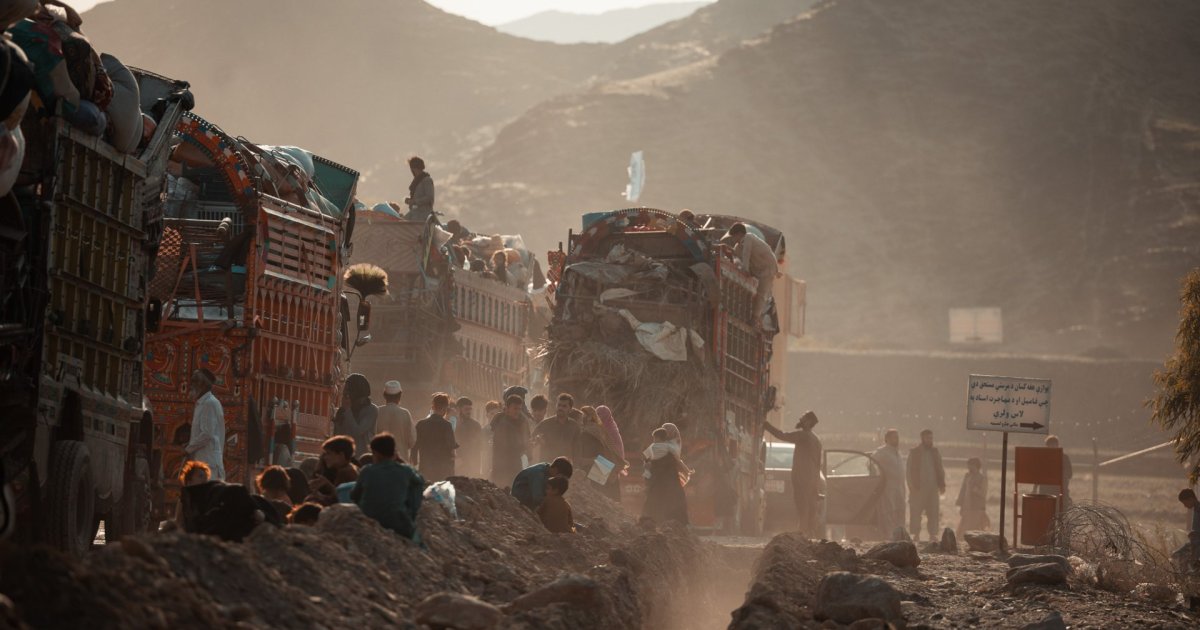
Geneva/Kabul, 6 May 2025 – Amid a sharp increase in the number of Afghan nationals returning from Pakistan – including 109,891 between 3 April and 3 May – the International Organization for Migration (IOM) and partners today launched an appeal to scale up urgently needed support at border and neighbouring areas, where dire conditions and funding shortfalls are compounding risks for the most vulnerable.
This appeal for additional funding by the IOM-led Border Consortium in Afghanistan seeks to address the needs of between 600,000 and 1.5 million Afghan returnees – most of whom are undocumented – driven by the second phase of Pakistan’s Illegal Foreigners Repatriation Plan (IFRP), which is expected to continue triggering large-scale returns in the coming months.
“Most of the people returning to Afghanistan are in a state of acute vulnerability, having been forced to leave behind their homes, possessions, and jobs. The most vulnerable of them, especially women and girls, are often separated from their families and they don’t have access to shelter and other essential services,” said Ugochi Daniels, IOM Deputy Director General for Operations. “At this most fragile time, we appeal to the international community to help us meet these urgent humanitarian needs.”
In April, an average of 3,000 people per day returned through key border crossings in Nangarhar and Kandahar provinces, according to the latest IOM data. Women and children make up most of these crossings, which until that month were averaging just 100 per day.
Equally alarming is the condition of deportees from Iran. Between January and April, IOM recorded over 265,000 undocumented Afghan returnees – with 75 per cent forcibly returned.
IOM and its partners also reiterated a call for all countries to immediately halt the forced returns of Afghans until conditions are in place to ensure safe and dignified returns and reintegration, regardless of a person’s immigration status.
Over 48,000 returnees have received critical support at IOM-run reception centres and two transit facilities. After screening, IOM and partners provide food, temporary shelter, transport, healthcare, and psychosocial support – especially for vulnerable groups like women and children.
However, the current conditions in Afghanistan make absorbing the rising number of returnees difficult, as communities are already strained by limited resources and weakened infrastructure. Sharp reductions in funding compound these difficulties, leaving local systems under severe pressure as the influx grows, threatening access to essential services for both returnees and host populations alike.
“As the lead agency of the border consortium of humanitarian partners, IOM is prepared to ramp up its response and expand operations at critical entry points. However, without immediate additional funding, efforts to meet the growing demand and support vulnerable returnees and receiving communities will remain severely constrained,” said DDG Daniels.
For more information, please contact IOM Media Centre
Please visit:
Our Sponsor
